Now in its second season, Good Trouble, The Fosters' spin-off that introduced rarely depicted characters including an Asian-American lesbian and a bisexual Latinx man as part of its lead ensemble when it premiered, continues to boldly portray the lives of LGBTQ-identified people and people of color. Having already tackled social issues including gender equality in the workplace, trans workers' rights, and the shooting of an unarmed young Black man by white police officers, Good Trouble took off running into its sophomore season.
Like its parent show before, the Freeform series, about 20-somethings navigating love and career in a hip downtown Los Angeles communal living space, balances humor and heart with the social issues it amplifies. A newer plotline involving Sherry Cola's Alice, who's Asian-American and newly out to her parents, and her partner, Joey (Daisy Eagan), who has recently begun using they/them pronouns, implements Good Trouble's brand of thoughtful storytelling to great effect as it delves into the nuances of dating while both parties are coming into their identities -- specifically when one of the people involved is nonbinary.
"My girlfriend, excuse me, my date/friend just changed her pronouns from her/she to they/them, which blows my mind because I'm not even sure who I/me is," Alice delivers clumsily but with a measure of self-awareness as part of a joke in her fledgling stand-up routine at a fundraising event for trans military personnel.
Later, she introduces Joey as her "girlfriend" before Joey corrects her with "partner." The back-to-back missteps on Alice's part lead to an argument and a near breakup before the two people who love each other realize they haven't been paying attention to each other's needs.

Sherry Cola and Daisy Eagan
"I'm extremely grateful to be a part of bringing that story out more into the public eye and to hear that people are grateful. It just makes everything that much better for me as an actor," Eagan tells The Advocate.
Eagan, a musical theater veteran who won a Tony Award for The Secret Garden when she was 11, came out as queer a few years ago. She has since written openly about her own questioning of the gender binary.
Still, when she received the script introducing Joey's nonbinary storyline, she checked in with Bradley Bredeweg (one of Good Trouble's trio of out creators, along with Joanna Johnson and Peter Paige) with her concerns about representation.
"I'm certainly gender-nonconforming, whatever that means, so they felt safe putting the story in my hands," Eagan says of wanting to be wholly respectful of nonbinary identities.
"It's very interesting timing because it's been over this past year that I've sort of been questioning what it means to be a woman. I've been on my own gender journey, so it was sort of real life mirroring art. I'm very lucky in that way," she adds, sharing a story of being on set with Paige between shots when he asked her why she appeared sad.
"I'm not sad. It's just intense. A lot of my personal stuff is being reflected here," Eagan says she replied. "It felt very vulnerable to put yourself out there to the world."
While nonbinary characters have sprung up on TV here and there on shows including One Day at a Time, Billions, and Degrassi: Next Class, they're still a group of people that is wildly underrepresented. Joey's presence on Good Trouble, especially in conjunction with Alice's coming out to her parents while finding her way as a queer stand-up comic, tells a cross-sectional love story like nothing else out there.

Cola, a stand-up comic when she's not on set for Good Trouble, praises the show's creators for their care in excavating the messiness of 20-something life.
"Alice is as real as it can get. She's so flawed and she's figuring it out and things are so messy. That's the case truthfully with everyone on this show. I think we keep it really real. These are just people in their 20s," Cola tells The Advocate.
Not only is Alice "real," but she's also a character in an underrepresented demographic, and Cola's proud of what Alice may mean to viewers who identify with her.
"I've talked about this before about [Alice], a first-generation Asian-American lesbian who is not out to her parents and who is going to bizarre lengths to hide who she is. ... It is a struggle, it is a roller coaster. It is such a tender and specific story that I never saw growing up," Cola says. "To be able to portray this character means the world to me."
"For those two random Asian girls in the Midwest who don't see themselves in anyone, who cannot relate and they feel different and they don't feel confident about who they are or where they are, I hope that they can see Alice," she adds.
Similarly, Eagan, who's received feedback from young and some older nonbinary folks who are happy for Joey's presence, believes in the power of that visibility to provide some solace for people who feel isolated.
"Even if they're in situations where their families are unaccepting or where they feel like they have to hide who they are because it's not safe, I think just even to see somebody who looks like them and has a similar background on TV -- the character being loved and accepted goes a long way for people to start to love themselves and accept themselves," Eagan says.
"Even if they can't come out publicly. I think it's so important," she adds.
As with most of Good Trouble's plotlines, Alice and Joey's story is socially and politically prescient, but it's also, at its center, just a universal story of love.
"It's cool that Alice and Joey are both figuring it out and checking in," Cola says. "We're so grateful to be a part of a show that isn't afraid to be calling things out, talking about things that are real -- reflecting real live people, and making sure that whoever is watching the show feels seen."
"Alice and Joey are real people in the world who 100 percent just have a story to tell," she adds.
Good Trouble airs Tuesday nights on Freeform.
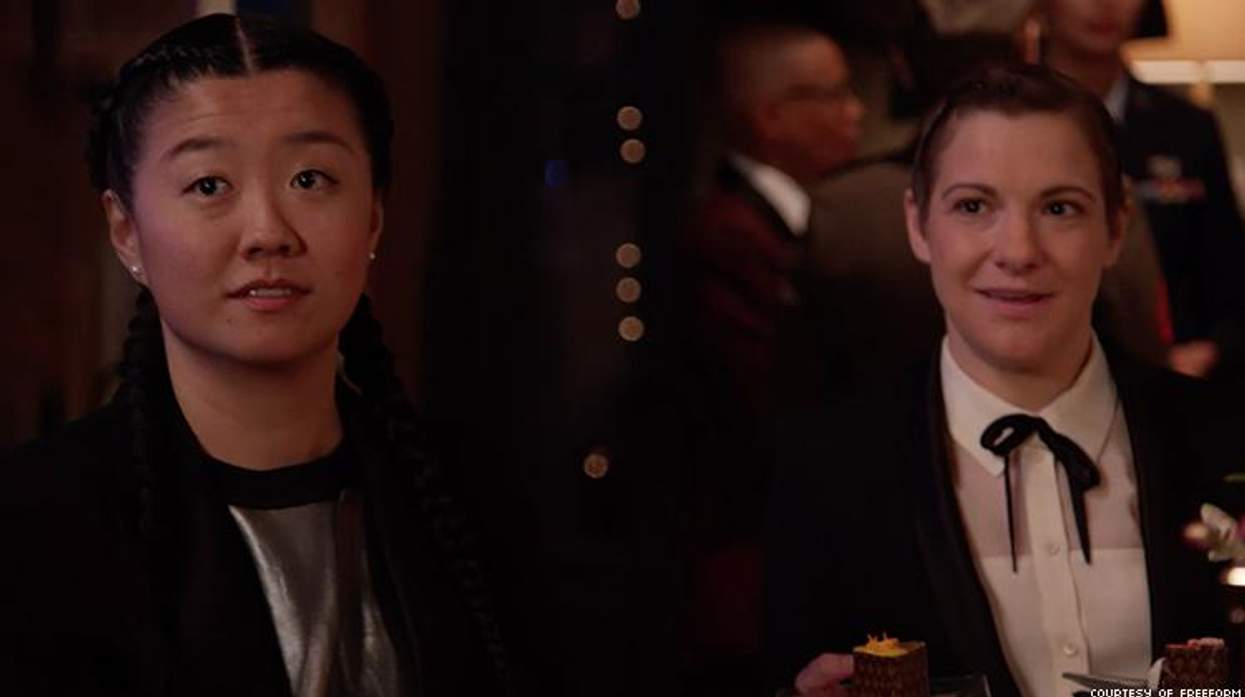

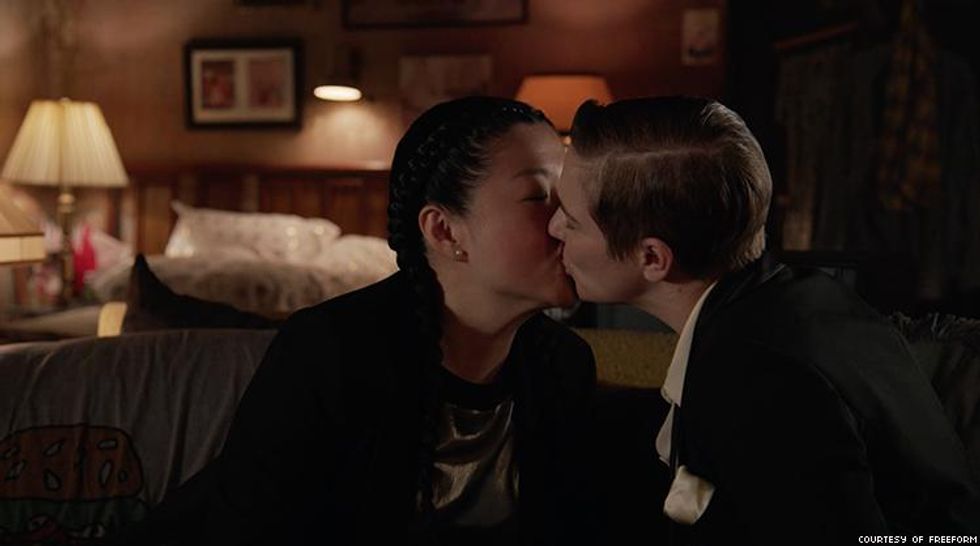
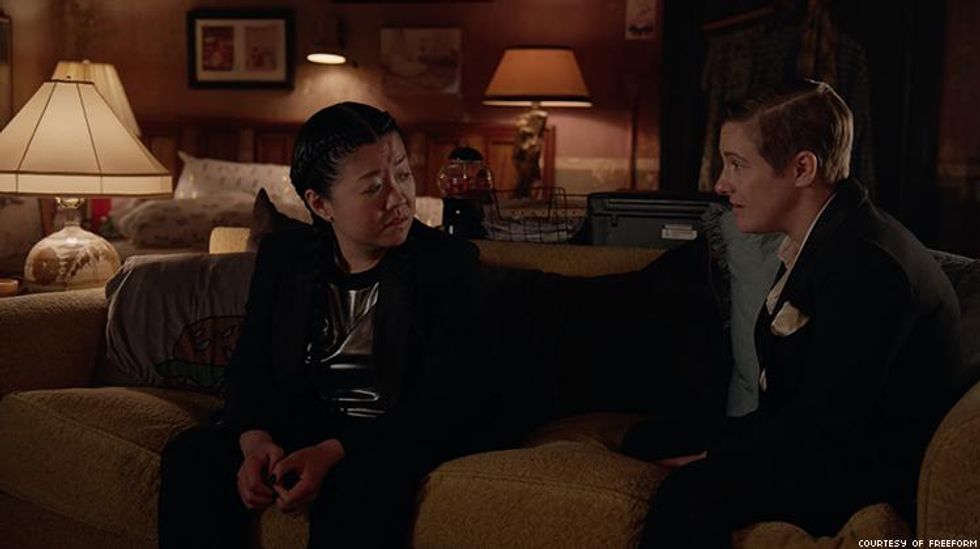









































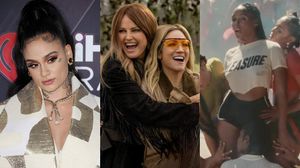



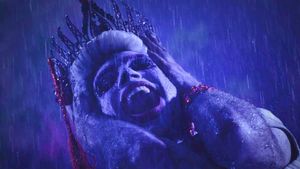




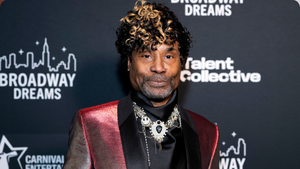
















Charlie Kirk DID say stoning gay people was the 'perfect law' — and these other heinous quotes